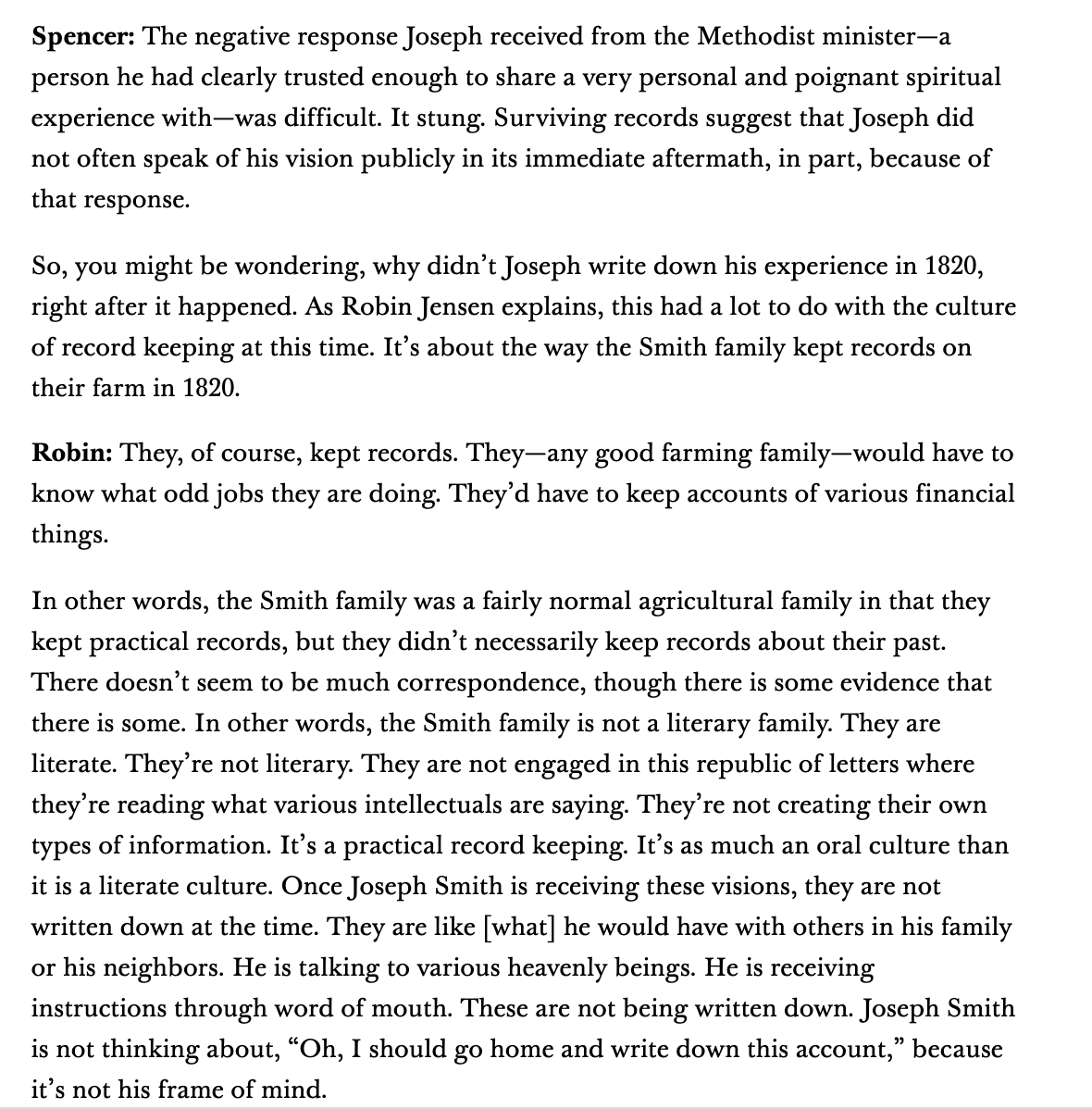RJ and SM discuss JS writing and record-keeping habits.
- Type
- Social Media
- Source
- Spencer McBride LDS
- Hearsay
- Scribed VerbatimDirectSecondary
- Reference
Spencer McBride, "'It Caused Me Serious Reflection' (The First Vision Podcast, Episode 5): Transcript," The Joseph Smith Papers website, accessed July 30, 2021
- Scribe/Publisher
- The Joseph Smith Papers
- People
- Robin Jensen, Spencer McBride
- Audience
- Latter-day Saints, General Public
- Transcription
Spencer [McBride]: The negative response Joseph received from the Methodist minister—a person he had clearly trusted enough to share a very personal and poignant spiritual experience with—was difficult. It stung. Surviving records suggest that Joseph did not often speak of his vision publicly in its immediate aftermath, in part, because of that response. So, you might be wondering, why didn’t Joseph write down his experience in 1820, right after it happened. As Robin Jensen explains, this had a lot to do with the culture of record keeping at this time. It’s about the way the Smith family kept records on their farm in 1820. Robin [Jensen]: They, of course, kept records. They—any good farming family—would have to know what odd jobs they are doing. They’d have to keep accounts of various financial things. In other words, the Smith family was a fairly normal agricultural family in that they kept practical records, but they didn’t necessarily keep records about their past. There doesn’t seem to be much correspondence, though there is some evidence that there is some. In other words, the Smith family is not a literary family. They are literate. They’re not literary. They are not engaged in this republic of letters where they’re reading what various intellectuals are saying. They’re not creating their own types of information. It’s a practical record keeping. It’s as much an oral culture than it is a literate culture. Once Joseph Smith is receiving these visions, they are not written down at the time. They are like [what] he would have with others in his family or his neighbors. He is talking to various heavenly beings. He is receiving instructions through word of mouth. These are not being written down. Joseph Smith is not thinking about, “Oh, I should go home and write down this account,” because it’s not his frame of mind.
- Citations in Mormonr Qnas
The B. H. Roberts Foundation is not owned by, operated by, or affiliated with the Church of Jesus Christ of Latter-day Saints.

